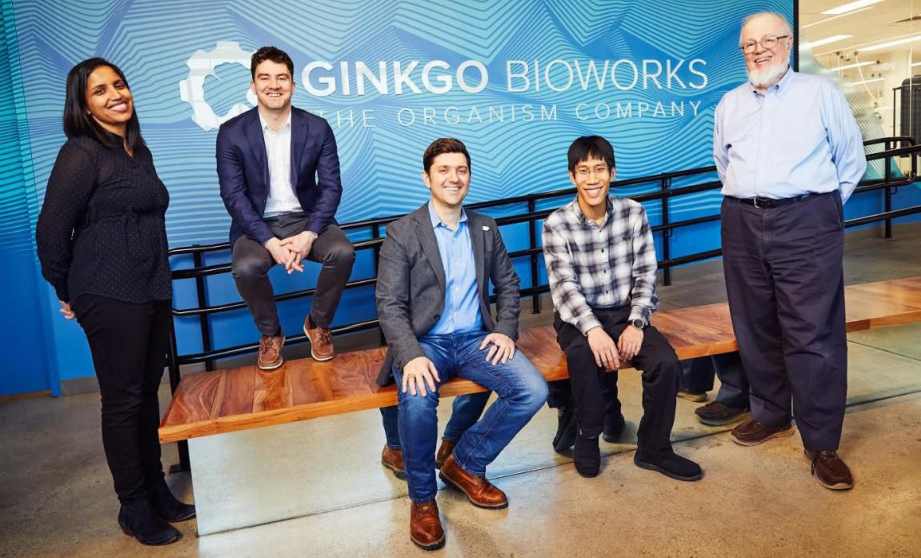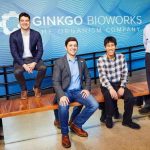Bill Gates-backed cell programming startup Ginkgo Bioworks is going public via a $15 billion SPAC deal

Synthetic or engineered biology is a field of science that involves redesigning organisms for useful purposes by engineering them to have new abilities. Today, synthetic biology companies and researchers are harnessing the power of nature to solve problems in medicine, manufacturing, and agriculture.
One of the leading companies in this space is Ginkgo Bioworks, a Boston, MA-based biotech startup and developer of biological engineering products and custom microbes across multiple markets. We covered Ginkgo Bioworks back in 2020 as one of the top 500 unicorn startups. The Bill Gates-backed startup calls itself the “organism company” because it designs and prints DNA, the building blocks that support all living things.
Ginkgo Bioworks is a cell programming platform that enables the growth of biotechnology across diverse markets, from food to fragrance to pharmaceuticals. Ginkgo is also actively supporting a number of COVID-19 response efforts, including community testing, epidemiological tracing, vaccine development, and therapeutics discovery.
Today, Boston-based Ginko announced it would go public through a merger with blank-check company Soaring Eagle Acquisition Corp. in a deal that values the biotech startup at $17.5 billion, including a $15 billion pre-money equity valuation for Ginkgo and $2.5 billion in deal proceeds. The deal would make it one of the largest SPAC mergers to date.
A blank-check company sometimes called a special purpose acquisition company (SPAC), is a shell company that has no operations but plans to go public with the intention of acquiring or merging with a company utilizing the proceeds of the SPAC’s initial public offering (IPO).
Ginkgo was founded in 2008 by a team of MIT scientists Austin Che, Barry Canton, Jason Kelly, Reshma Shetty, and Tom Knight. Their intent was to build made-to-order microbes that enable customers to grow rather than manufacture better products. The company calls itself the “organism company” because it designs and prints DNA, the building blocks that support all living things.
In Spring 2020, Ginkgo worked with vaccine maker Modena to optimize the process for the development of vaccines from years to months. As part of its involvement with vaccine development, Ginkgo said the following on its website:
“Because nucleic acid vaccine production is heavily regulated, we were able to quickly discover more optimal processes for our partner which could be implemented easily under existing regulatory constraints. This was possible because of our deep expertise in understanding the many dimensions and parameters of experimental design, and our ability to stand up foundry services and high-throughput analytical pipelines to run and process experiments.”
Ginkgo’s founders have been working together for nearly twenty years since they first met at MIT. They launched Ginkgo in 2008 with the consistent goal of developing a platform that makes cell programming easier for their customers and partners.
Ginkgo’s platform leverages advanced robotic automation, proprietary software, and data analytics to continuously improve the technology (“Foundry”) as well as the knowledge and re-usable biological assets (“Codebase”) required to engineer biology. Ginkgo has built a scalable engineering and data platform by integrating a spectrum of innovative life sciences tools into their Foundry and has amassed a large, flexible, and diverse biological Codebase to facilitate innovation across a wide breadth of applications.
There is a growing awareness of the capabilities and potential of engineered biology, ranging from mRNA vaccines to animal-free protein to renewable plastics. Much like computer programming impacted every information-based industry (including media, telecom, advertising, and finance), cell programming has the potential to impact every physical goods industry (including therapeutics, food, agriculture, chemicals, and electronics). Ginkgo programs living cells for customers in any industry, so they can realize the potential of biology to grow more sustainable and innovative products.
Ginkgo’s founders have been working together for nearly twenty years since they first met at MIT. They launched Ginkgo in 2008 with the consistent goal of developing a platform that makes cell programming easier for their customers and partners. Ginkgo’s platform leverages advanced robotic automation, proprietary software, and data analytics to continuously improve the technology (“Foundry”) as well as the knowledge and re-usable biological assets (“Codebase”) required to engineer biology. Ginkgo has built a scalable engineering and data platform by integrating a spectrum of innovative life sciences tools into their Foundry and has amassed a large, flexible, and diverse biological Codebase to facilitate innovation across a wide breadth of applications.
“The magic of biology is that cells run on digital code similar to a computer, except that instead of 0s and 1s it’s As, Ts, Cs, and Gs,” said Jason Kelly, co-founder and CEO of Ginkgo Bioworks, Inc. “Ginkgo’s platform makes it easier to program this code, and we are making this platform available to organizations working to solve our most pressing problems. From mRNA vaccines reaching people’s arms to combating climate change, the opportunity to work with programmed cells has never been more apparent. We are thrilled to partner with Arie as well as the team at Soaring Eagle to bring this vision to life.”

